#Traffic
Missouri: Police Chief Admits Red Light Cameras Have Made No Difference
The top cop in the city of Washington, Missouri admitted last week that there is no evidence that red light cameras have made a change for the better. Police Chief Kenneth W. Hahn compiled accident information from 36 months prior to camera installation for comparison with 33 months of after data. The results were not favorable.
“It is impossible to determine if the cameras have had an obvious impact on safety since prevention is an intangible outcome; in other words we don’t know if we prevented an accident or not because it didn’t happen,” Hahn wrote. “We can only look at the raw data and if the impact is significant, then it is an obvious result. Provided the next three months of anticipated accidents are included for an accurate comparison, it is my opinion the three year red light camera program has had little, if any, impact on the overall safety of the two intersections.”
Virginia: Rutherford Institute Takes on Red Light Cameras
A civil rights think tank on Friday urged Albemarle County, Virginia to cancel its red light program. In a letter to county supervisors, the Rutherford Institute made the case that the contract the county entered into with Australian vendor Redflex Traffic Systems violates the law and will likely not achieve the stated goal of reducing accidents.
“The Redflex contract incorporates a so-called ‘cost-neutrality’ provision whereby the company’s compensation, up to the amount of the contractual monthly fee, hinges on the number of violations or monetary penalties imposed,” the group’s president, John W. Whitehead, wrote. “Regardless of how the fee arrangement is worded or structured, it is likely to be found in violation of Virginia law where the vendor has a financial incentive to ensure that a high number of citations are issued.”
Germany: Judge Faces Discipline For Questioning Speed Camera Legitimacy
A veteran district court judge in Herford, Germany was ordered this week not to hear traffic cases after he dared question whether speed camera citations are being issued merely as a means of generating revenue. Judge Helmut Knoner faces two criminal charges for acquitting forty-two motorists last month after noting that the automated ticketing machines lacked a solid legal foundations and appeared to be installed by authorities with questionable motives.
“Many cities and municipalities are feeling the pressure of empty coffers and earn good money with photo radar,” Knoner stated.
California: Court Reaffirms Ruling Against Tasering Motorists
The US Court of Appeals for the Ninth Circuit on Tuesday reaffirmed a decision handed down in January ( read decision) limiting the ability of police to taser motorists over minor traffic violations. Coronado, California Police Officer Brian McPherson blasted motorist Carl Bryan, then 21, with a 1200-volt taser during a traffic stop over a minor infraction on the Coronado Bridge near San Diego, five years ago. Bryan lost four of his front teeth and was hit with “resisting arrest” charges. He sued, claiming excessive force had been used.
“We concluded that Officer Brian MacPherson used excessive force when, on July 24, 2005, he deployed his X26 taser in dart mode to apprehend Carl Bryan for a seatbelt infraction, where Bryan was obviously and noticeably unarmed, made no threatening statements or gestures, did not resist arrest or attempt to flee, but was standing inert twenty to twenty-five feet away from the officer,” Judge Kim Wardlaw summarized.
NHTSA: Drugged Driving On The March
Drunk driving is often heralded as a model for government-led shifts in personal behavior, as the social taboo around drinking and driving has become stronger with time. But what about other drugs, both illegal and legal? Most drugs do not impair driving ability as obviously as alcohol, and intoxication is not always easy to spot… in fact, it’s not technically illegal to drive when taking a legal medication that may impair driving. As a result, NHTSA is noticing a distinct uptick in the number of positive tests for legal and illegal drugs performed on drivers who died in car wrecks.
According to data compiled by NHTSA, 63 percent of the 21,798 drivers who were killed in motor vehicle crashes in 2009 were tested for drugs. Of these, 3,952 tested positive for drug involvement, representing 18 percent of the total for that year. The report also showed drug use reported by the states among fatally injured drivers increasing from 13 percent in 2005, to 15 percent in 2006, 16 percent in 2007, and 18 percent in 2008.
The drug data released today was collected by NHTSA as part of its Fatality Analysis Reporting System (FARS) and included information collected from the states under three broad categories: whether the driver was tested, the type of test conducted, and the test results. The types of drugs recorded in FARS include narcotics, depressants, stimulants, hallucinogens, cannabinoids, phencyclidines (PCPs), anabolic steroids, and inhalants. The groups include both illicit drugs, as well as legally prescribed drugs and over-the-counter medicines.
Lawsuit Challenges Rental Car, Photo Ticket Collaboration
A federal lawsuit seeks damages against a rental car company for allowing the photo enforcement firm American Traffic Solutions (ATS) to place charges on the credit cars of customers without their consent. North Carolina resident Dwight Simonson filed the case in the US District Court for the District of New Jersey earlier this year and hopes it will be certified as a class action. Simonson had rented a Hertz automobile in Orlando, Florida on June 23, 2009 and was outraged to find himself being billed $10.75 by ATS for a 75 cent toll. Since 2005, the New Jersey-based Hertz Corporation has worked with ATS through a program known as PlatePass through which renters can use toll roads with a built-in payment system. Frequent travelers have expressed outrage over the automatic billing for various forms of traffic fines they consider excessive. Simonson argues that the program is intended to defraud renters.
Federal Judge Blocks Red Light Camera Removal in Houston, Texas
A federal judge issued an order last Friday blocking the immediate removal of red light cameras from Houston, Texas intersections. On November 2, voters adopted an amendment to the city charter making photo tickets unenforceable, against the wishes of the Houston city council and the private vendor that operates the cameras, American Traffic Solutions (ATS). Over the Thanksgiving holiday, US District Court for the Southern District of Texas Judge Lynn N. Hughes worked out a deal with the city and ATS to preserve the cameras, for now.
New Mexico: Photo Enforcement Locations See More Accidents, Injuries
The Las Cruces, New Mexico city council on Monday agreed once again to continue using a photo enforcement program that has proved to cause a significant increase in accidents. The jurisdiction in May reluctantly complied with a New Mexico Department of Transportation (NMDOT) order shutting down automated ticketing on state roads. Officials ignored the evidence at the time that accidents had increased, not decreased as promised, at photo enforced locations.
Speed Camera Firm a Millionaire Factory
Millions of dollars paid by motorists in red light camera and speed camera fines end up in the pockets of a handful of individuals. In the United States, American Traffic Solutions (ATS) is responsible for about 41 percent of the nation’s photo enforcement business, but as a private company its dealings are well concealed from public scrutiny. Based on a review of documents marked “confidential — attorneys’ eyes only,” the ATS leadership team has reaped significant personal profit in a short amount of time.
New York City Launches Bus Lane Ticket Cameras
Automated cameras will begin issuing tickets to the owners of vehicles that momentarily stray into bus lanes in New York City, New York beginning Monday. The cash-strapped metropolis imported the idea from London where a similar system generated 293,000 citations and more than £35 million (US $56 million) in 2008. New York’s bus lane tickets will run between $115 and $150 each.
The project marks one of the first uses of automated enforcement in the United States that drops the pretense of being a safety measure. The stated purpose of the new cameras is to give buses a travel priority over automobile traffic.
American Roads Safer Than Ever… But How Safe Is Safe Enough?
On-road fatalities per vehicle-mile-traveled in the United States have fallen to their lowest level in recorded history ( and dropping fast)… so safety advocates must be thrilled with the success, right? Wrong. After all, success is almost more dangerous to a crusade than failure. Luckily for the hand-wringing faction, a study by the National Research Council has re-defined what it means to be safe enough on America’s roads: rather than comparing fatalities to America’s past (which makes the current environment seem great), the key is comparing America’s safety record to completely different countries. Take it away, New York Times:
While France and 15 other high-income nations cut their traffic fatalities by half from 1995 to 2009, the United States showed only a 19 percent reduction over that same time period. Britain dropped the number of fatal accidents by 39 percent over the last 15 years, and Australia by 25 percent.
And what makes the US different than these other countries (other than the fact that we apparently don’t care about traffic deaths)? The problem, it turns out, is our insufficiently intrusive government.
Indianapolis, Indiana Approves Parking Meter Lease Deal
Indianapolis, Indiana followed in the footsteps on Chicago, Illinois by deciding on Monday to sell its parking meters to a private company — a decision that has proved highly controversial in the Windy City. The vote was a close one.
The Indianapolis parking meter deal squeaked through the city council 15 to 14. Under the arrangement council members approved, the city will lease out 3700 metered spaces for fifty years for only $20 million up front. The city will get to share in the revenues which, according to city estimates, will bring in $620 million over the life of the lease. The Indianapolis contract, unlike the terms of Chicago’s relatively inflexible deal, does provide the option of opting out of the deal every ten years.
Texas Cities Shut Down Cameras After Public Vote
Red light cameras are no longer issuing tickets to motorists in America’s fourth-largest city. The Houston, Texas city council on Monday canvassed the results of the November 2 vote and ordered the cameras unplugged. In the nearby city of Baytown, red light cameras will be disabled at midnight on November 26.
“The voting public has spoken,” Houston City Attorney David M. Feldman wrote Monday in a letter to Jim Tuton, CEO of the camera contractor American Traffic Solutions (ATS). “Houston must follow the mandate of the electorate. Houston hereby terminates its contract with ATS. This termination is effective immediately. ATS is required to turn off all red light cameras installed and/or monitored by reason of the contract and ATS is to do so immediately.”
Federal Court Green Lights Anti-Camera Lawsuit
A federal appellate court ruled Tuesday that a portion of a lawsuit against the red light camera and speed camera program in Cleveland, Ohio could proceed. Daniel McCarthy and Colleen Carroll argued that the city had unconstitutionally deprived them of their property after the Parking Violations Bureau fined them $100 when the municipal traffic camera ordinance did not give the city any authority to impose a fine on someone who leases his vehicle. A district court judge threw out the case, but the US Court of Appeals for the Sixth Circuit found merit in the state law aspects of their argument.






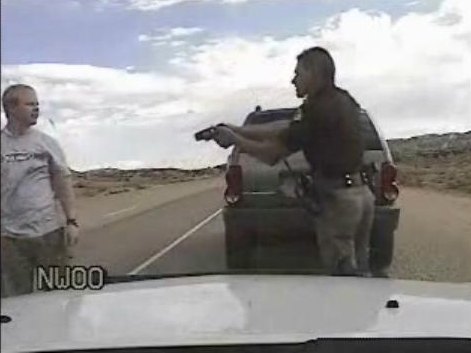


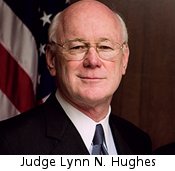
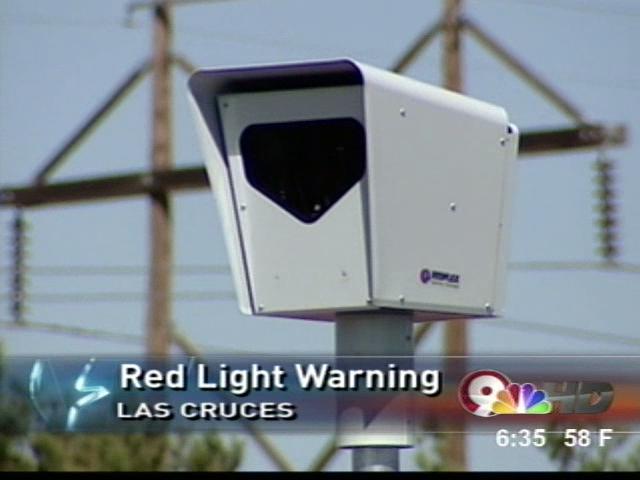
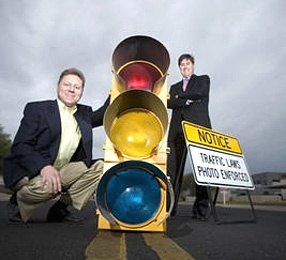
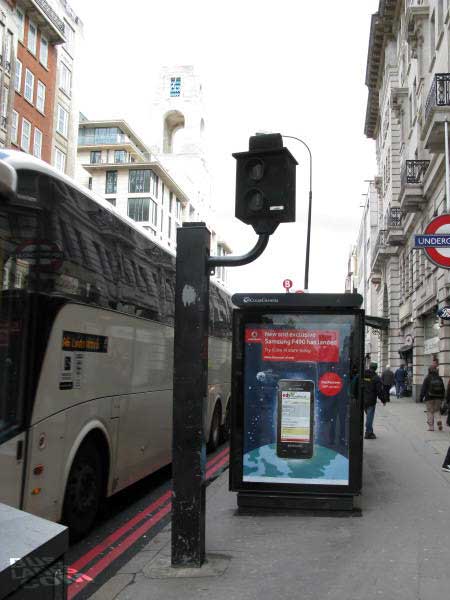
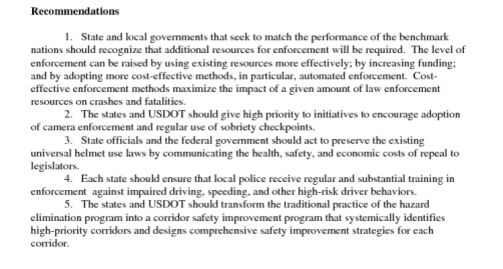
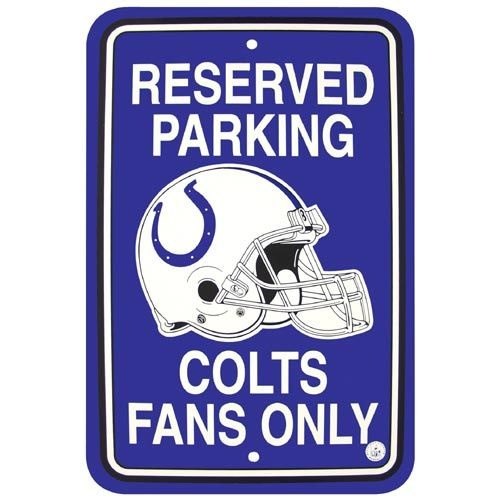

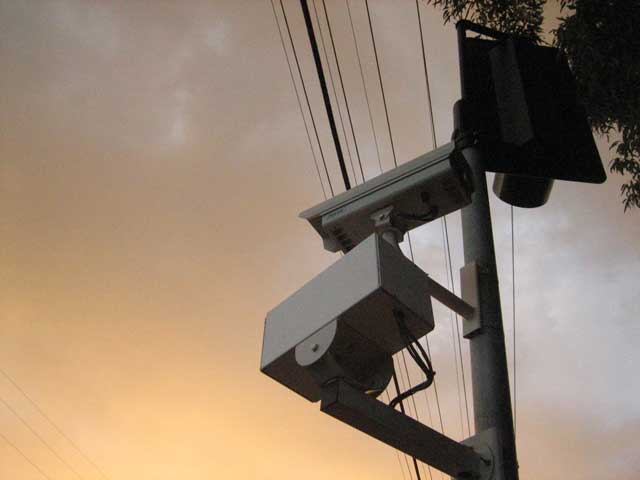
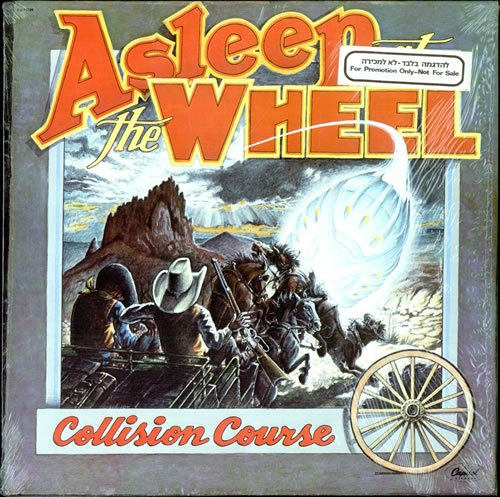












Recent Comments